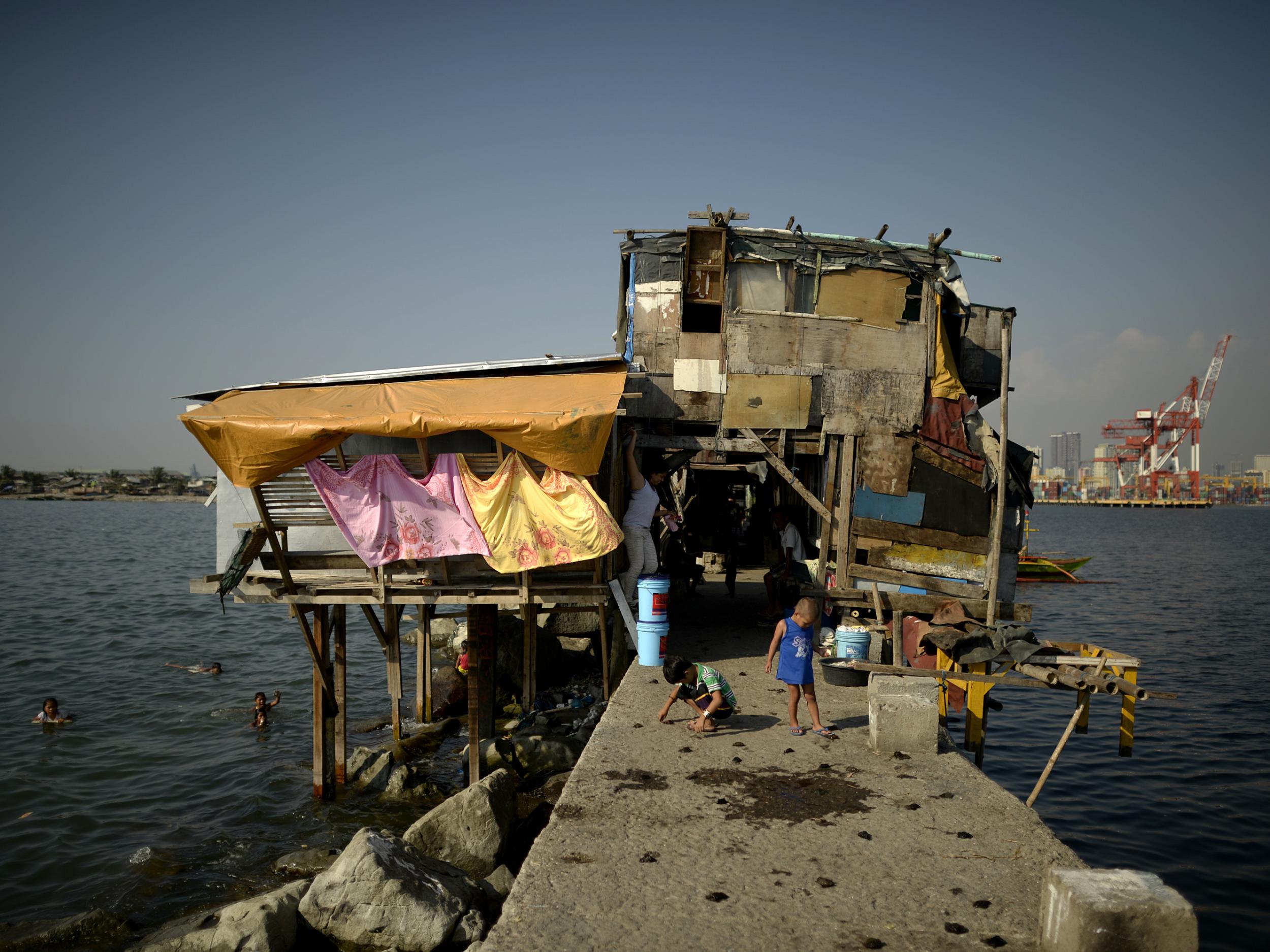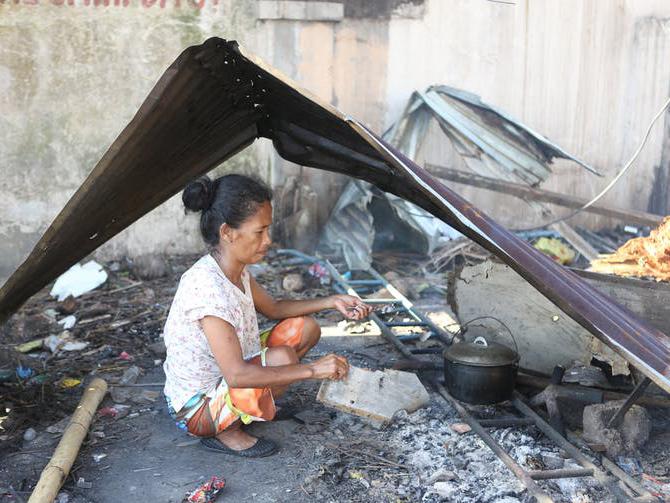The Philippines holds world's biggest corporations to account on climate change
After a long run of devastating typhoons, the country most affected by climate change is demanding justice

Your support helps us to tell the story
From reproductive rights to climate change to Big Tech, The Independent is on the ground when the story is developing. Whether it's investigating the financials of Elon Musk's pro-Trump PAC or producing our latest documentary, 'The A Word', which shines a light on the American women fighting for reproductive rights, we know how important it is to parse out the facts from the messaging.
At such a critical moment in US history, we need reporters on the ground. Your donation allows us to keep sending journalists to speak to both sides of the story.
The Independent is trusted by Americans across the entire political spectrum. And unlike many other quality news outlets, we choose not to lock Americans out of our reporting and analysis with paywalls. We believe quality journalism should be available to everyone, paid for by those who can afford it.
Your support makes all the difference.Corporations and governments around the world increasingly stand accused of causing or failing to prevent the damaging effects of climate change. Test cases are being filed in many countries to establish who is responsible and what action should be taken.
In 2016, after a series of particularly violent typhoons hit the Philippines, a group of Filipino citizens and civil organisations, including Greenpeace, accused 47 corporations of having significantly contributed to climate change, and called for them to be held accountable. Dubbed the “Carbon Majors”, these included the likes of Shell, BP and Chevron.
The group asked the Philippines Human Rights Commission to investigate the Carbon Majors’ responsibility for alleged breaches of Filipinos’ human rights to “life, health, food, water, sanitation, adequate housing and self determination” that are associated with climate change.

The Carbon Majors petition bases its claims on a study by climate expert Richard Heede, which attributes “the lion’s share of cumulative global CO2 and methane emissions since the industrial revolution” to the world’s largest producers of crude oil, natural gas, coal and cement.
Taking on the big guns
In an unprecedented move, in December 2017, the commission agreed to investigate the Carbon Majors petition. Its powers are relatively modest: the commission can only make recommendations to the Filipino authorities and those found to have breached human rights, but it cannot award damages and it has no enforcement powers. Still, its decision could be a game changer for climate change litigation.
In 2005, a group of Inuit petitioned the Inter-American Commission on Human Rights to assert the United States’ responsibility for human rights violations associated with climate change in the Arctic. But the petition was dismissed on procedural grounds. So what has changed since then?
In recent years, a long string of United Nations Human Rights Council resolutions has emphasised the role of human rights in tackling climate change. The most recent international climate change treaty – the 2015 Paris agreement – explicitly links human rights and the obligations of climate change law. These developments seem to have emboldened efforts to use human rights law as a means to tackle climate change.
Far from being an isolated complaint, the Carbon Majors petition is part of a global upsurge in climate change litigation. Yet, there are complex legal obstacles to attributing responsibility for breaches of human rights caused by climate change.
First, applicants have to demonstrate that the obligations of corporations encompass human rights violations associated with the adverse effects of climate change. Second, they have to prove that a specific corporation has contributed to climate change, in such a way that amounts to a breach of human rights.
But a balance has to be struck between environmental protection and other legitimate interests, such as providing energy for consumers. However, John Knox, the United Nations Special Rapporteur on human rights and the environment, has pointed out that this cannot result in unjustified, foreseeable breaches of human rights. He has also suggested that improved scientific knowledge, such as that used to identify the Carbon Majors, has made it easier to trace the links between particular emissions and resulting harm.

A petition for justice
All of these elements come together in the Carbon Majors petition, which concerns harm caused by corporations that was largely foreseeable. Recent research suggests that corporations have long known about climate change and its likely consequences, but have failed to act on it.
So the petition can be likened to groundbreaking litigation for harm caused by smoking tobacco or by driving cars. Before successful court cases were brought, liability for either of these hazardous activities was hard to establish. It was only when courts started to attribute responsibility that victims were provided with redress, and dedicated insurance schemes and liability regimes were created.
The decision of the Philippines Human Rights Commission to investigate the Carbon Majors petition is, then, potentially revolutionary. In 2018, the commission will carry out a series of fact-finding missions and public hearings in the Philippines, London and New York to establish whether multinational corporations can be held responsible for human rights violations associated with climate change and, if so, recommend ways to mitigate them.
Far from being a symbolic gesture, this acknowledgement of multinationals’ role in causing climate change would be a primer, and could potentially spark a domino effect in climate change litigation elsewhere.
Corporations are already being brought to courts in the US, where the cities of New York and San Francisco are seeking to hold the world’s biggest oil companies responsible for present and future damage caused by climate change.
All eyes are now on the Philippines to see what conclusions its Human Rights Commission will draw; for many, it has already made history by deciding to investigate the Carbon Majors petition in the first place.
Annalisa Savaresi is a lecturer in environmental law and co-director of LLM/MSc environmental policy and governance at the University of Stirling, Ioana Cismas is a senior lecturer at the University of York and Jacques Hartmann is a senior lecturer and director of the LLM in international law and security at the University of Dundee. This article first appeared on The Conversation (theconversation.com)
Join our commenting forum
Join thought-provoking conversations, follow other Independent readers and see their replies
Comments